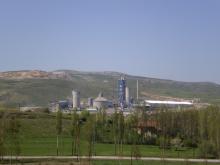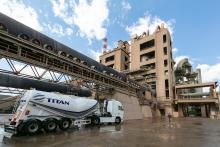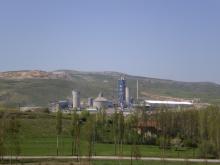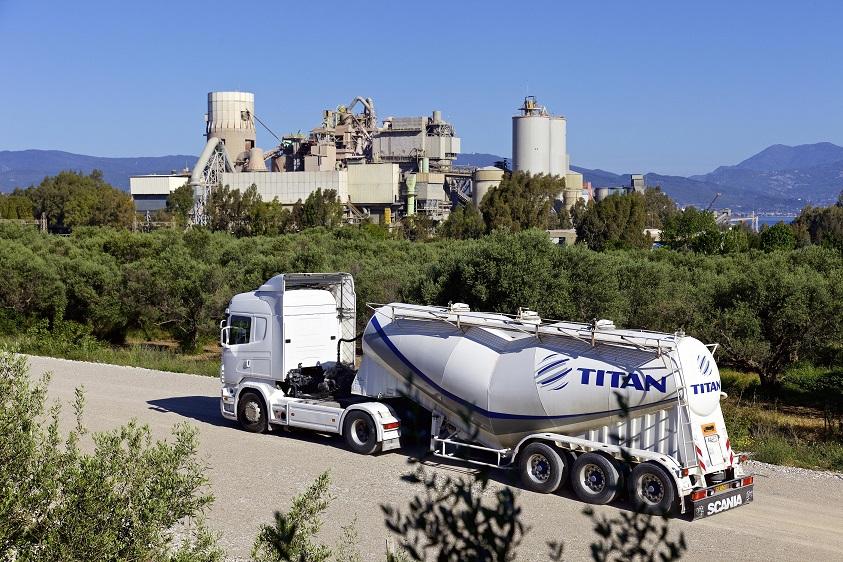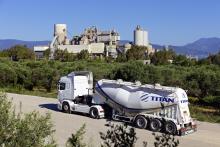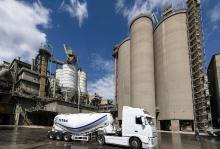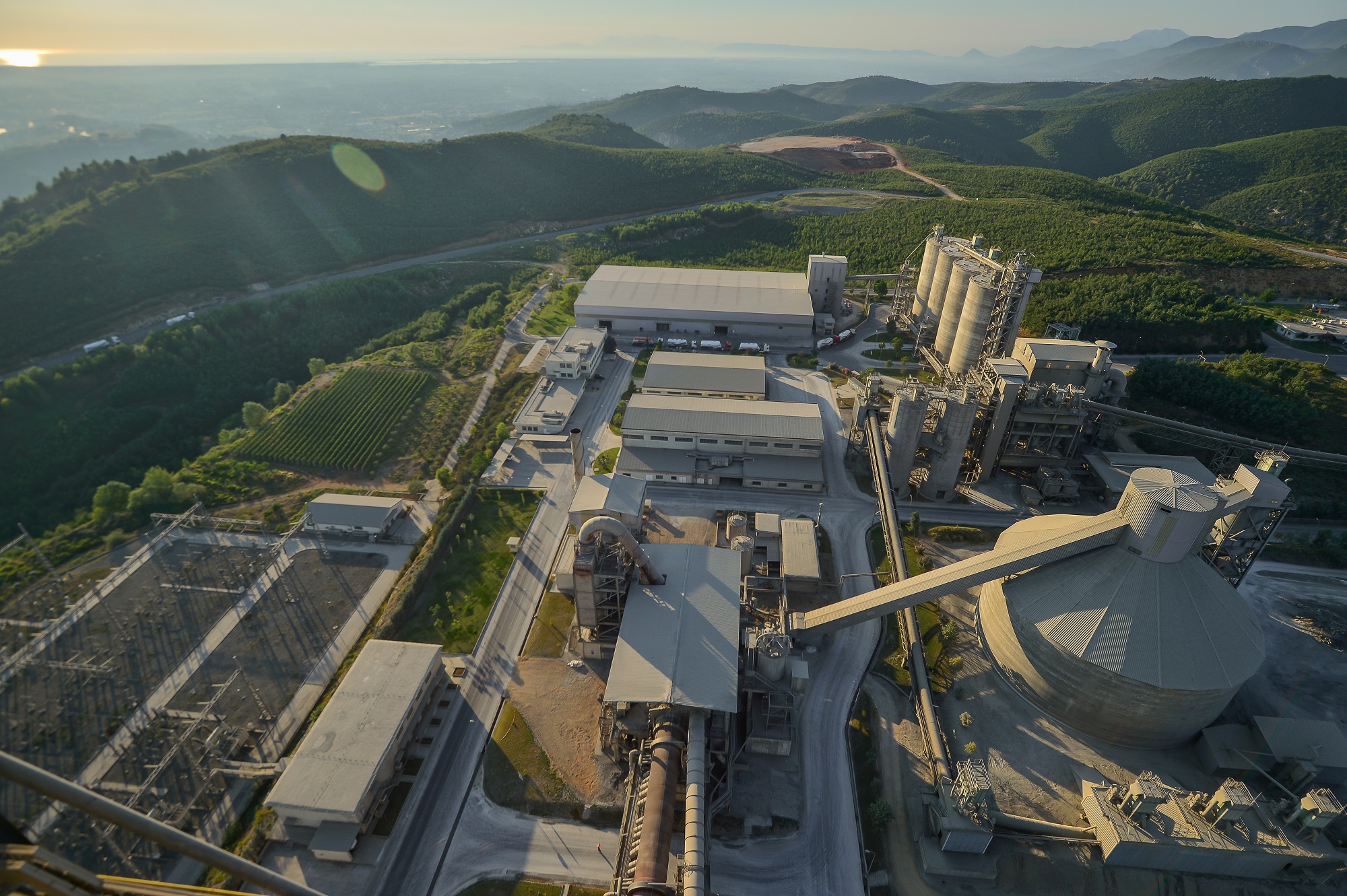
The Greece-headquartered multi-national group’s EBITDA was up 10% to €229mn benefiting from lower energy prices, cost control and resilience of pricing. Titan Cement Group revenue was €1,202mn in the third quarter, while the group also achieved strong cash flow generation and a decrease of group net debt by €74mn compared to the end of 2019 and by €125mn compared to the end of September 2019.
Titan Cement Group performance is said to have been supported by the underlying strength of the U.S. market, solid performance in Southeastern Europe and the recovering Greek market. The Egyptian market was said to be disappointing for the group.
Dimitri Papalexopoulos, chairman of the Titan Cement Group Executive Committee, said: “We are successfully addressing several challenges at the same time: taking care of our people and those around us, delivering improved operating results and accelerating progress against our sustainability ambitions. Despite the uncertain context, we remain confident in the solidity of our business model, based on the nature of construction activity, our track record in facing the pandemic and the resilience and dedication of our people.’’
Looking at Titan Cement Group's Q3 performance in more detail, the U.S. continued to exhibit dynamic underlying fundamentals during the quarter, with trading activity not severely affected by the coronavirus pandemic. The residential segment, particularly single-family new homes, as well as infrastructure continued to drive the market while commercial/industrial has slowed down due to the macroeconomic conditions. Record low mortgage rates and a low stock of unsold houses drove strong demand for the residential segment.
In Florida and the Mid-Atlantic, while variances exist between different localities, the market situation remained healthy, underpinned by both the strong market conditions in residential as well as by infrastructure. At the same time, a strong performance was recorded in the aggregates business where the group is capitalising on its strategy of vertical integration.
Profitability in the third quarter was aided by careful cost management, amplified by Titan America’s ability to flexibly adapt to market conditions. Titan America delivered a solid performance in US$-terms. In the first nine months of 2020, revenue in the U.S. was €714.6mn, posting a marginal decline of 1% in Euro terms. EBITDA reached €141.4mn, growing by 3.2%. EBITDA margin increased and reached 19.8% vs 19% in the same period last year.
The market in Greece staged a strong rebound following the easing of lockdown restrictions in May. A pick-up in activity continued in the third quarter underpinned by a healthy pipeline of smaller projects spanning both specific infrastructure segments as well as commercial/industrial buildings across the mainland and outside urban centres.
Major infrastructure projects commenced but are still at their initial stages, while the long-awaited contract for the construction of Athens Metro line 4 has now also been awarded. Private building activity also exhibited positive momentum. Exports for the period were reduced, reflecting a decision to decrease less profitable exports, taking a long-term view of CO₂ requirements.
Coupled with the healthy performance of the Greek market, profitability was aided by prevailing lower thermal energy prices. Continuing progress in the utilisation of alternative fuels in our Greek plants has contributed to reducing both costs and the group’s carbon footprint. In the first nine months of 2020, revenue in Greece and Western Europe was €177.9mn, posting a 3.9% decrease. EBITDA reached €16.4mn, growing by 5.9%.
Almost all domestic markets where the Titan Cement Group is present in the Southeastern Europe region rebounded strongly in the third quarter. Revenue in the first nine months of 2020 was €196.6mn, posting a 0.9% increase, supported by pricing gains and overall resilient volumes. Activity in the region continued to be driven by a mix of residential and commercial works, as well as select infrastructure projects mostly regarding road works, depending on the specific market.
The favourable energy cost side of the profitability equation contributed to the region’s EBITDA, which reached €72.7mn up by 23.4% in the nine months, compared to the same period last year.
In Turkey, despite severe macroeconomic challenges, the market recorded a sharp increase, fuelled by private construction supported by the government’s incentives and housing programme. June housing sales were the highest on record, and housing stock has been sharply reduced, with new building development expected to continue. Despite the group’s healthy performance, foreign exchange weakness penalises translation into Euro.
Adocim, the Titan Cement Group’s subsidiary in Turkey, benefited from buoyant local demand, which, supplemented by exports, led to strong revenue gains and profitable operating performance.
In Egypt, market conditions remain challenging for the Titan Cement Group. The country suffers from overcapacity and 2020 has marked the fourth consecutive year of decline in demand. Domestic consumption in the nine months recorded a shrinkage of about 7%. The main reason for the decline has been the six-month suspension of licenses for private construction, partially lifted in October and recovering since. Pricing also remained anaemic owing to the low capacity utilisation rates affecting all producers in the market.
In the first nine months of 2020, revenue in the Eastern Mediterranean region was €113.2mn, posting a 5.8% increase year on year. EBITDA, reflecting the disappointing conditions in Egypt, was negative by €1.1mn.
The Brazilian market, where the Titan Group has a joint venture, Cimento Apodi, enjoyed growth for the second year in the row. Our business in Brazil has been growing with a rise in profitability, reflecting improvements both in volumes and prices. The market experienced a surge in demand witnessed even during the first wave of the pandemic. This was primarily due to the spur in DIY and private activity instigated during the lockdown period. Market fundamentals remain stable; however, the standing uncertainty persists owing to the continuing surge of new cases of the pandemic in a vast and populous country.
Turning attention to the Titan Cement Group’s future outlook, a group spokesperson said: “While market fundamentals remain solid and the drivers of demand are in place to support operational growth, the second wave of Covid-19, which appears to be taking hold across many countries, limits predictive ability regarding the evolution of performance. The timing and the extent of any upturn cannot be predicted. Despite the uncertain context, we remain confident in the solidity of our business model, based on the nature of construction activity, our track record in facing the pandemic and the resilience and dedication of our people.
“As per the group CO₂ initiative, our long-term goal is to reduce specific net direct CO₂ emissions to approximately 30% below 1990 levels by 2030. Meanwhile, we are rapidly progressing towards meeting the 20% reduction target by 2021-2023, by increasing the use of alternative fuels, accelerating efforts in energy efficiency and reducing clinker content in cement.”

